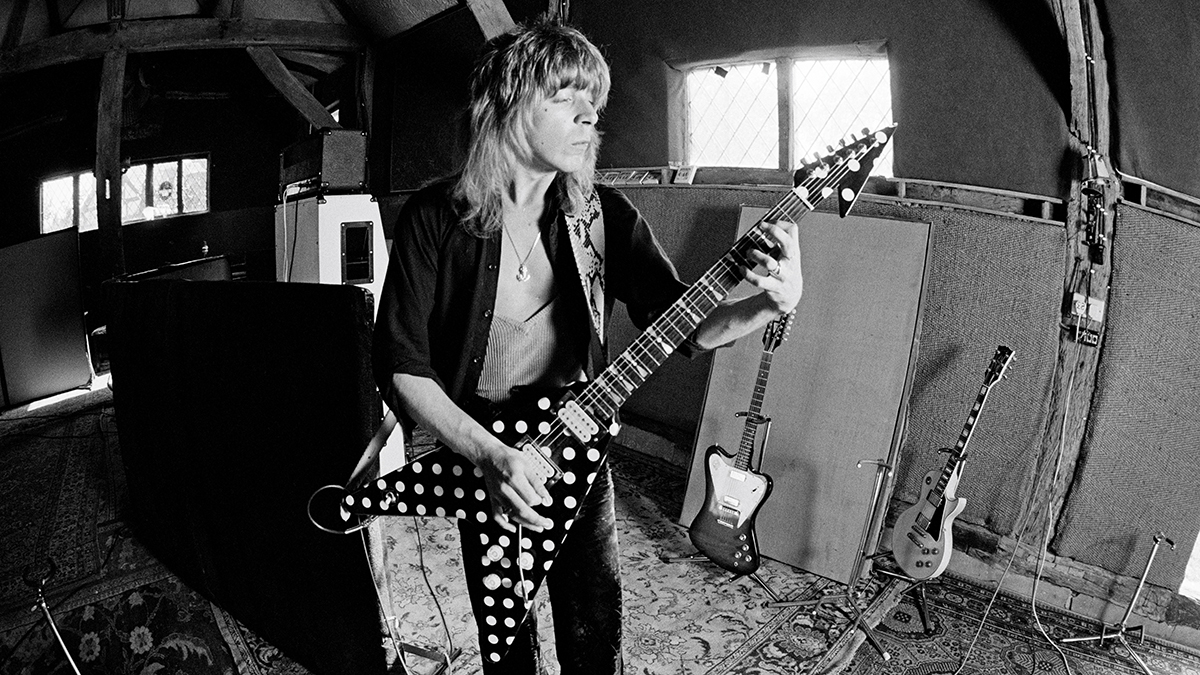“Everywhere we went he'd find a classical guitar teacher. He was practicing a piece his tutor had given him. He was turning that into an intro”: Ex-Ozzy Osbourne bassist recalls how Randy Rhoads wrote the guitar parts to Diary of a Madman
In a sprawling new interview, Bob Daisley has given fans a fresh look behind the curtain at Ozzy’s first two solo records – and Rhoads' virtuosic guitar talents

Former Ozzy Osbourne bass player Bob Daisley – who was a key part in establishing the Prince of Darkness' solo career – believes Diary of a Madman is one of the best representations of Randy Rhoads' electric guitar talents.
The title track to Osbourne's second solo record – and the last to feature Rhoads' dazzling chops before his untimely passing in 1982 – combined the guitar icon's well-documented love for classical guitar with a suitably maddening musical complexity. Randy's playing, as Daisley says, is at the heart of the song.
Daisley's CV is vast: away from Ozzy, he's shared studios and stages with Uriah Heep, Gary Moore, and Black Sabbath. As such, he knows what it's like to work with a great guitarist.
When asked to pick the definitive Randy Rhoads guitar song during a conversation with YouTuber Johnny Beane, Daisley quickly highlighted Diary of a Madman – which was apparently inspired by a piece of classical music.
“Crazy Train is a great radio-friendly song,” Daisley says of Rhoads' guitar talents. “It was a great riff, Randy and I put that together. But Diary of a Madman came about because everywhere we went, he'd find a classical guitar teacher, and he was practicing a piece called Etude that his tutor had given him.
“He was turning that into an intro for a song. It was an embellishment, or an elaboration, of the exercise that he was doing.”
Indeed, those influences can be clearly heard in the finished version, which would eventually go on to become the title track of Osbourne's ’81 LP – but not before the classically-informed guitar showcase received some initial pushback from the vocalist.
All the latest guitar news, interviews, lessons, reviews, deals and more, direct to your inbox!
“Because it had a lot of time changes and was a bit nuts, we thought it would be great for the title track,” Daisley adds. “[But] Ozzy didn’t like what we’d done. I don’t think he understood it musically. I remember his exact words: ‘Who do you think I am, Frank fucking Zappa?’
“It was an ideal title track because it has that air about it being a little bit nuts; it’s a good example of Randy’s approach to writing and playing.”
Interestingly, very early into his relationship with Rhoads, Daisley knew the burgeoning guitar hero would go down in history.
“When I first saw Randy he had perfect hair and fitted clothes. He had style and class,” Daisley goes on. “We got on great. It just clicked. As soon as we finished the first stint of jamming together we looked at each other and almost simultaneously said, 'I like your playing'.
“The next day, Randy and I were stood at Stafford train station and I had a premonition of, 'One day, people will ask me what it was like to play with Randy Rhoads.' I remember it like it was yesterday.”
In related news, MXR's new Randy Rhoads Distortion+ pedal – created after MXR's pedal boffins inspected the guts of Rhoads' famed chip pan pedalboard for the first time in 40 years – is due for release later this year.
A freelance writer with a penchant for music that gets weird, Phil is a regular contributor to Prog, Guitar World, and Total Guitar magazines and is especially keen on shining a light on unknown artists. Outside of the journalism realm, you can find him writing angular riffs in progressive metal band, Prognosis, in which he slings an 8-string Strandberg Boden Original, churning that low string through a variety of tunings. He's also a published author and is currently penning his debut novel which chucks fantasy, mythology and humanity into a great big melting pot.



